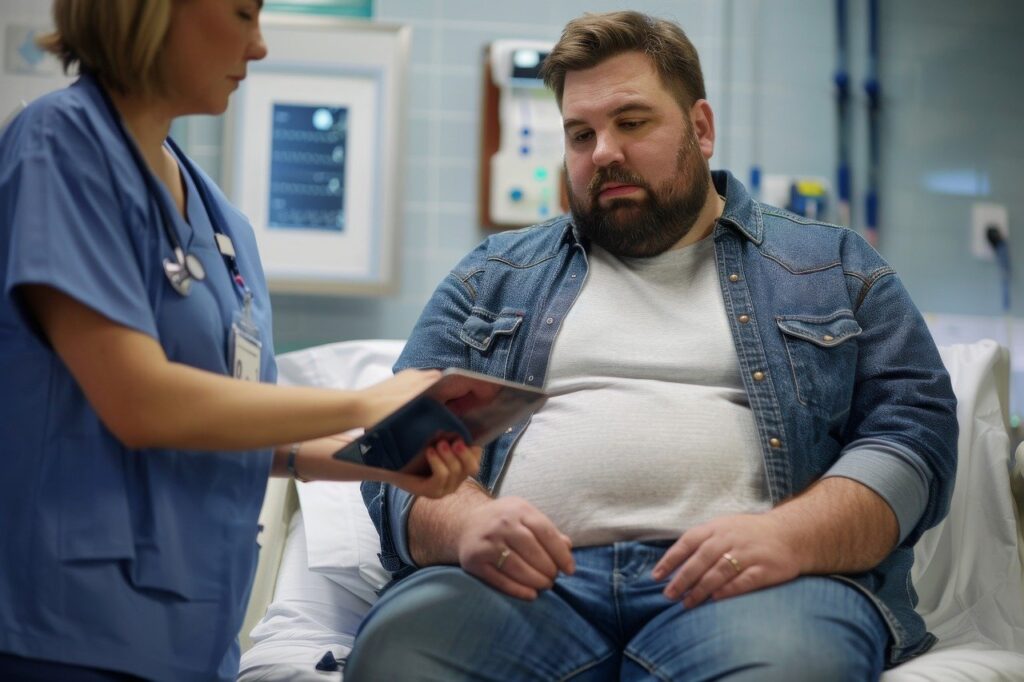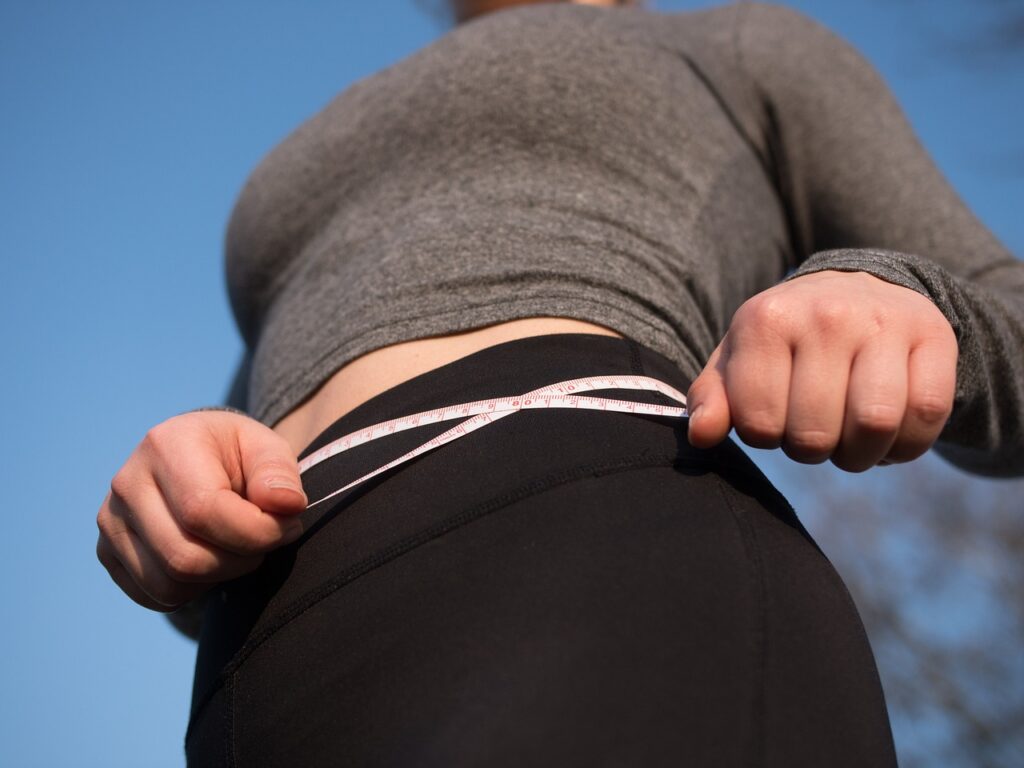Obesity is a growing health concern worldwide, affecting millions of individuals and contributing to a wide range of health issues. Among the many health risks associated with obesity, varicose veins stand out as a common and often overlooked complication. Understanding the link between obesity and varicose veins is crucial for promoting vein health and reducing the risk of related complications. In this article, we’ll explore the connection between obesity and varicose veins, along with strategies for managing symptoms and seeking appropriate care.

Obesity is defined as having excess body fat, typically resulting from a combination of genetic, environmental, and lifestyle factors. Excess weight can exert increased pressure on the veins, leading to venous insufficiency and the development of varicose veins. Here’s how obesity affects vein health:
Increased Pressure on Veins: Excess weight places added pressure on the veins, especially those in the lower extremities. This increased pressure can weaken vein walls and valves, impairing blood flow and contributing to the formation of varicose veins.
Reduced Physical Activity: Obesity is often associated with a sedentary lifestyle, characterized by prolonged periods of sitting or standing. Lack of physical activity can further exacerbate vein issues by hindering blood circulation and promoting venous congestion.
Hormonal Changes: Obesity can lead to hormonal imbalances, including elevated levels of estrogen, insulin, and inflammatory markers. These hormonal changes can affect vein structure and function, increasing the risk of varicose vein development.

Managing Varicose Vein Symptoms in Individuals with Obesity: While obesity can increase the risk of varicose veins, there are several strategies individuals can use to manage symptoms and promote vein health:
Maintain a Healthy Weight: Adopting a healthy diet and lifestyle to achieve and maintain a healthy weight can help reduce the risk of varicose veins and related complications. Focus on consuming a balanced diet rich in fruits, vegetables, lean proteins, and whole grains, and engage in regular physical activity to support vein health.
Stay Active: Regular exercise is essential for improving circulation, strengthening leg muscles, and reducing the risk of vein issues. Aim for at least 30 minutes of moderate-intensity exercise most days of the week, such as walking, cycling, or swimming.
Wear Compression Stockings: Compression stockings can provide support for weakened veins, improve blood flow, and reduce swelling and discomfort associated with varicose veins. Wear compression stockings as directed by your healthcare provider, especially during periods of prolonged sitting or standing.
Seek Professional Evaluation and Treatment: If you’re experiencing persistent or severe symptoms of varicose veins, it’s essential to seek evaluation and treatment from a qualified vein specialist. Minimally invasive treatments such as sclerotherapy, endovenous laser ablation (EVLA), or radiofrequency ablation (RFA) may be recommended to alleviate symptoms and improve vein health.
Obesity is a significant risk factor for varicose veins, contributing to venous insufficiency and related complications. By understanding the link between obesity and varicose veins and implementing strategies to manage symptoms and promote vein health, individuals can reduce their risk of developing vein issues and improve overall well-being. If you’re struggling with varicose veins or have concerns about vein health, don’t hesitate to seek evaluation and treatment from a qualified healthcare provider. At The Institute for Vein Health, with locations in Addison and Palos Hills, Illinois, Dr. Peter Brukasz and our team are dedicated to providing compassionate care and personalized treatment options to help you achieve healthier, happier legs.
